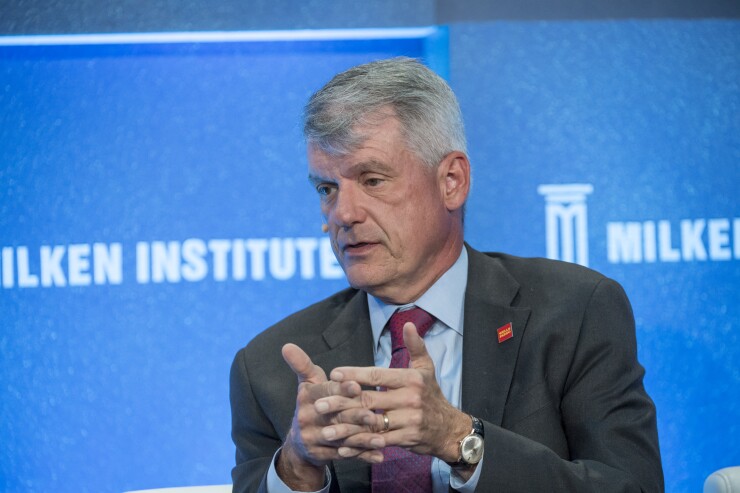A long-awaited analysis of sham accounts opened at Wells Fargo will be released “within a few weeks,” CEO Tim Sloan said in a companywide message.
The third-party review will identify “potentially unauthorized accounts” opened between 2009 and 2016, according to the message, published in a company press release Tuesday. The review is based on account-usage patterns that raise red flags, such as credit cards that were issued but never activated.
Once the review is complete, Wells will begin the process of refunding fees that were charged to the accounts. The San Francisco company plans to send letters to affected customers, notifying them of the refunds.

In his message, Sloan emphasized that not all accounts identified in the forthcoming review are necessarily fake. Instead, Wells has intentionally “cast a wide net,” choosing to issue refunds on accounts that fit patterns of improper sales activity, even if improper activity cannot be confirmed.
“Since our analysis was inclusive and erred on the side of the customers, this group most likely includes a population of accounts that were authorized by our customers,” said Sloan, adding that the review looked at patterns that “sometimes, but not always, indicate a lack of authorization.”
So far, Wells has issued more than $5 million in refunds and related payments, as the result of direct customer outreach, according to Sloan.
The forthcoming report is the latest step in the company’s yearlong effort to get beyond its bruising sales scandal.
Wells agreed last September to pay nearly $190 million to settle charges that more than 5,000 employees created roughly 2 million fake accounts to meet sales goals and collect bonus pay.
Sloan’s message to employees came just weeks after Wells
Wells attributed the likely increase, in part, to its decision to expand the scope of its review. Last fall, Wells hired a consulting firm to analyze accounts opened between 2011 through 2015. The review was later expanded to cover a seven-year period, from 2009 through 2016,
In his note to employees, Sloan downplayed the decision, which he said was made late last year.
“You may get the impression from some news stories that the expanded time period for our account review was ‘new’ news,” Sloan said. “That is not the case. While the final results will be new once received, we made the commitment to conduct this analysis over 10 months ago.”
Additionally, Sloan said that Wells will begin sending notices about its class-action settlement in the coming weeks. The notices will include information for customers about submitting claims.
A federal judge in June
“We’ve heard customers’ concerns about potential harm to credit scores due to unauthorized accounts, and that’s why an important part of this settlement is remediation to customers for increased borrowing costs,” Sloan said.





